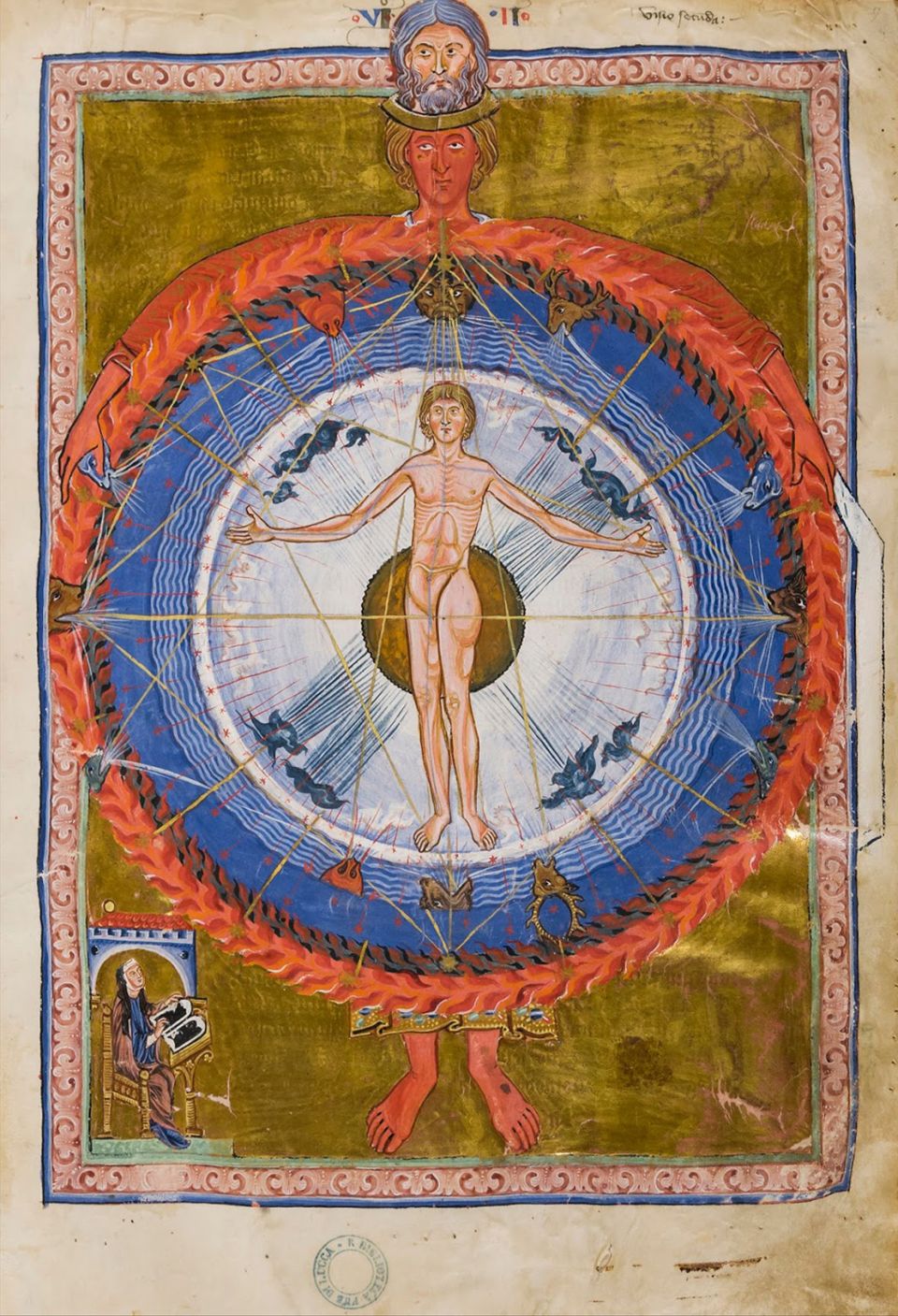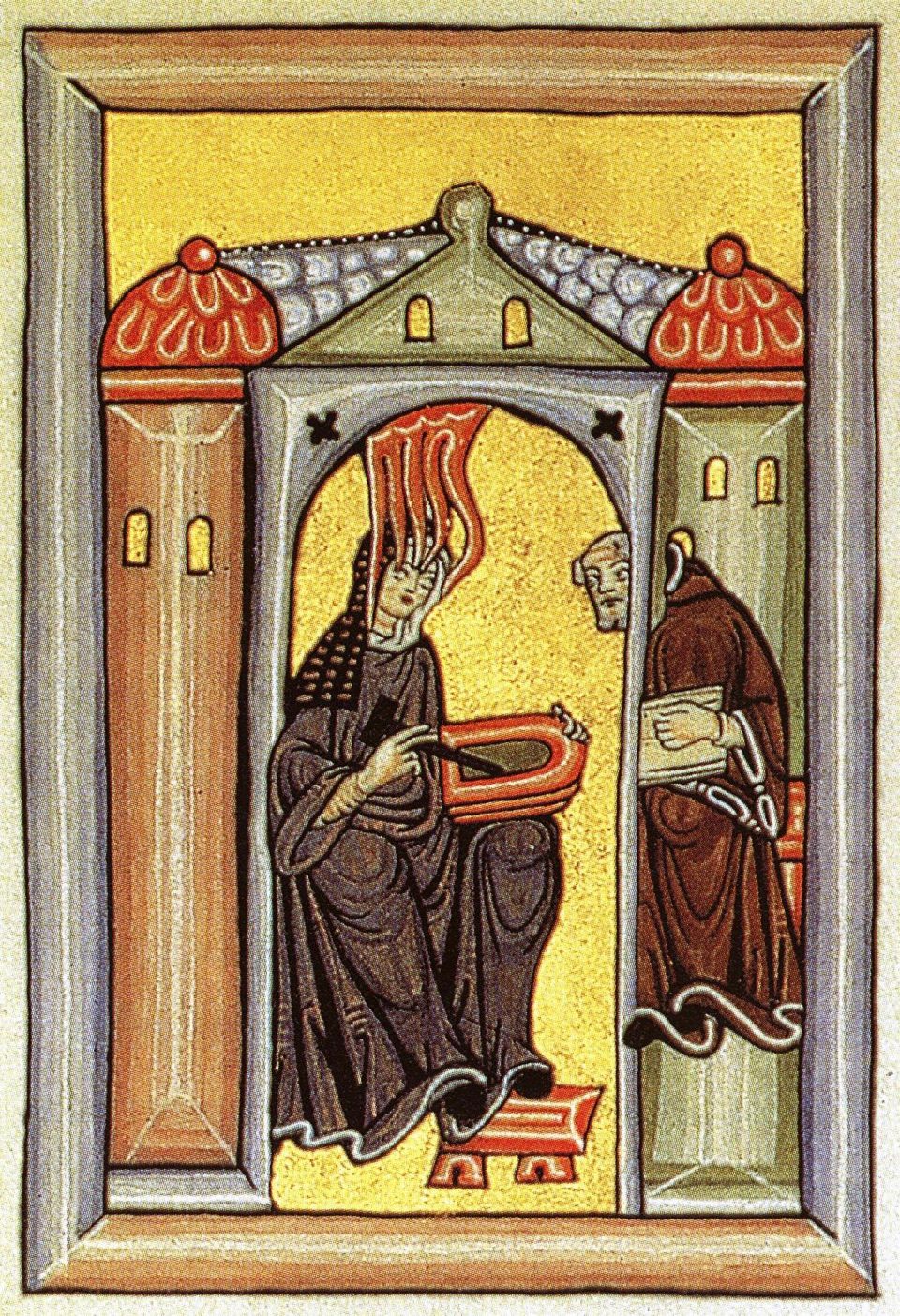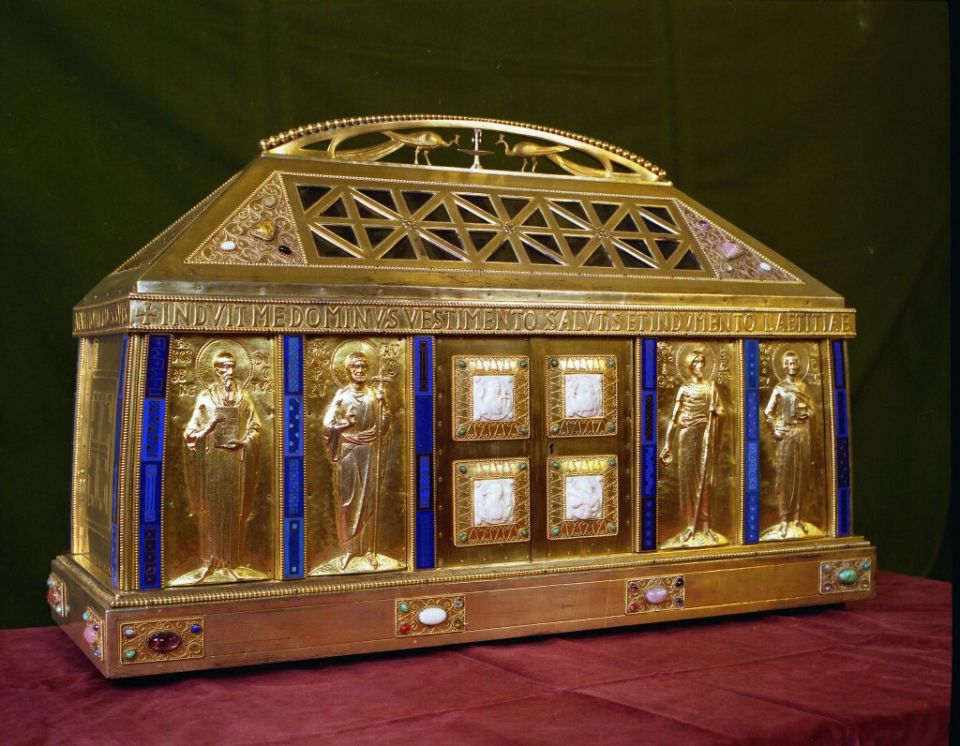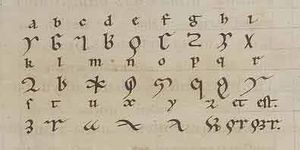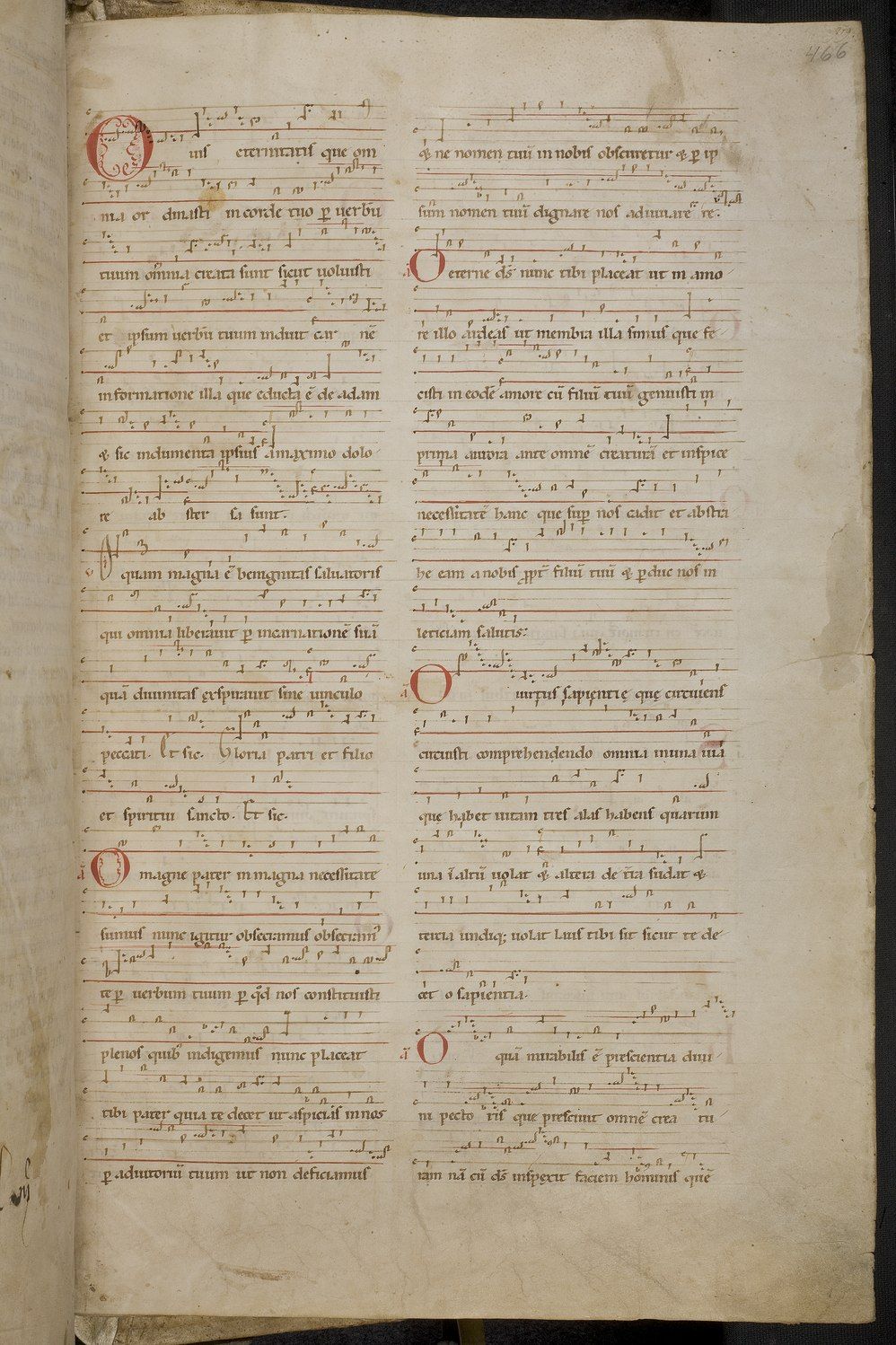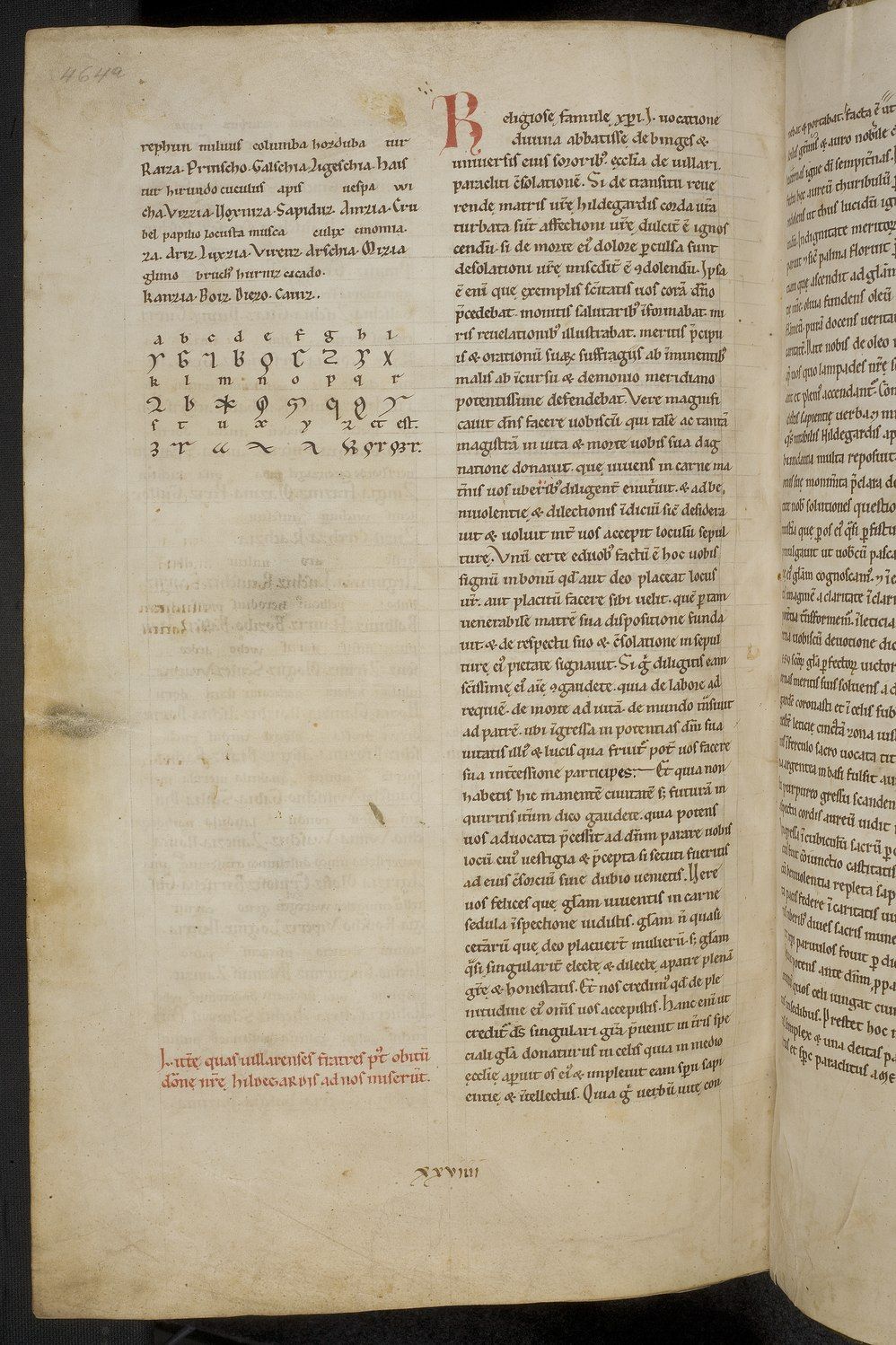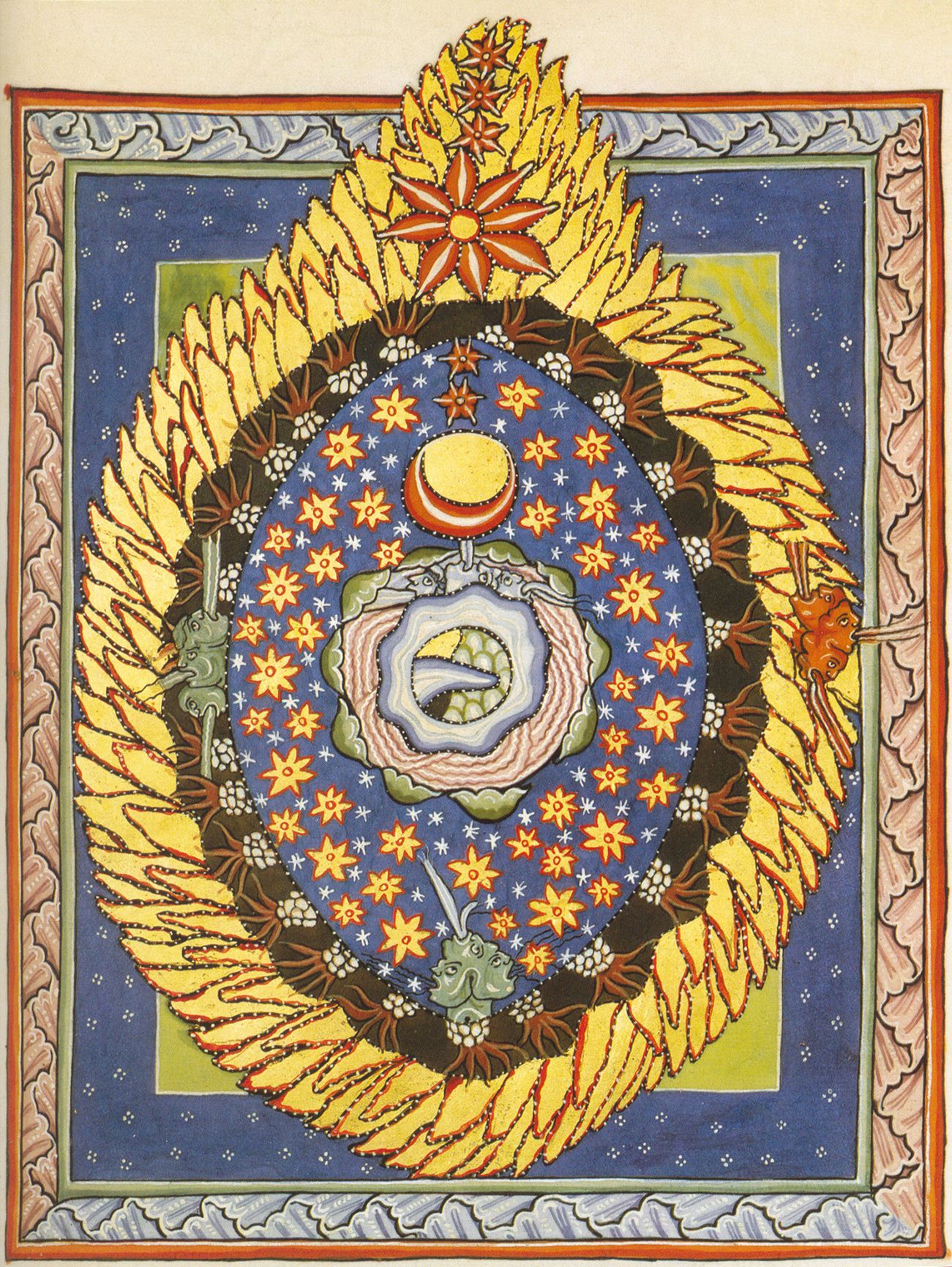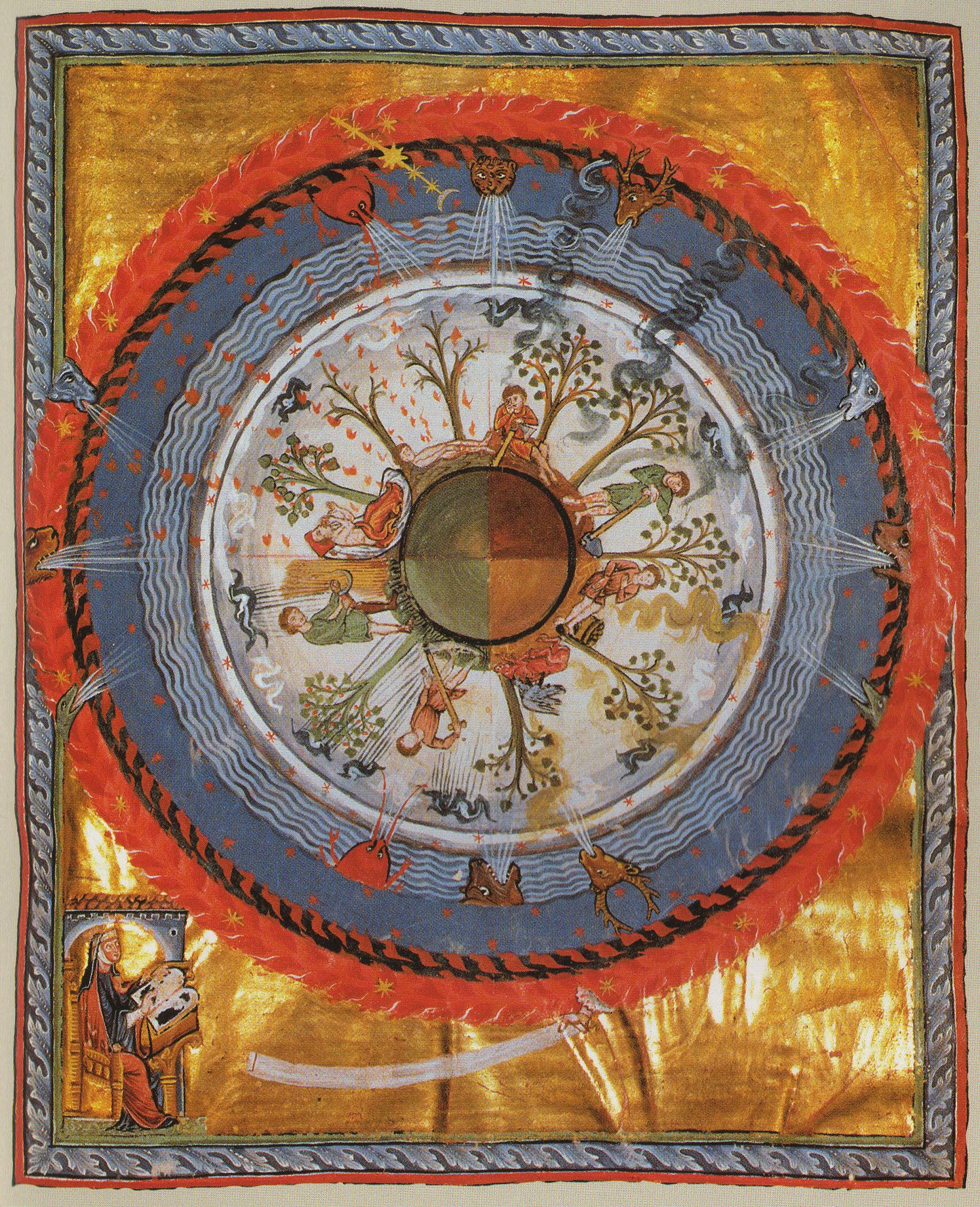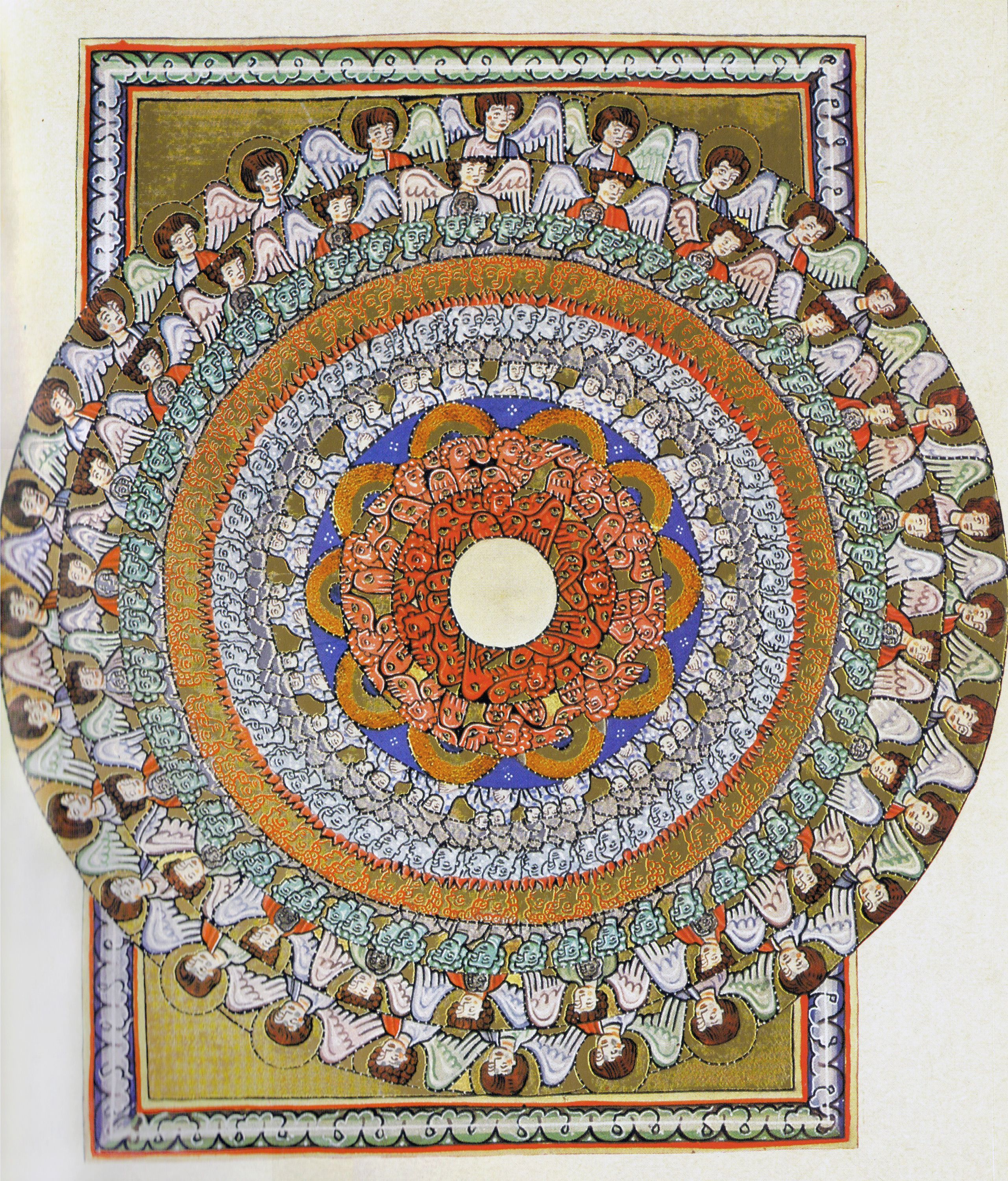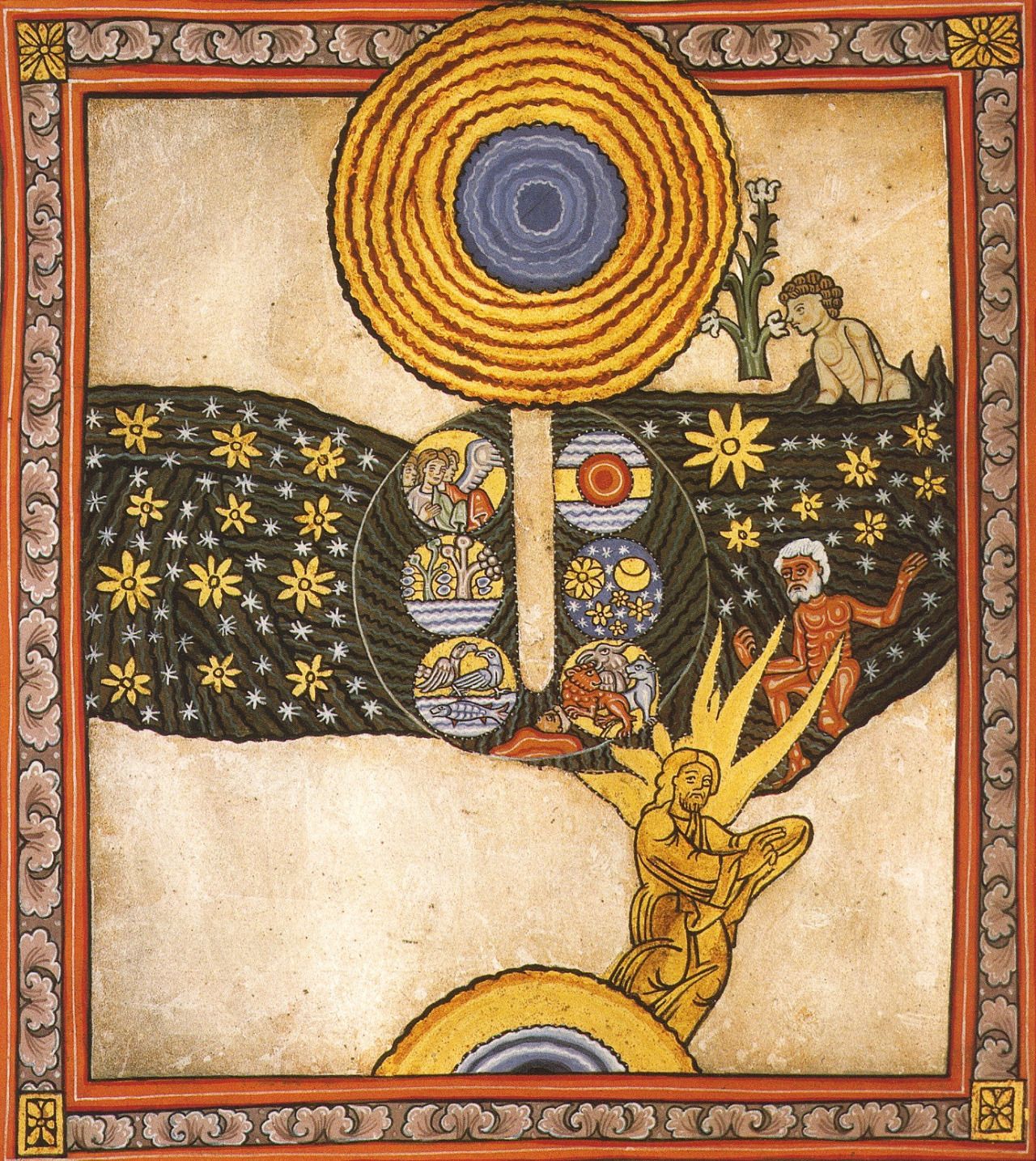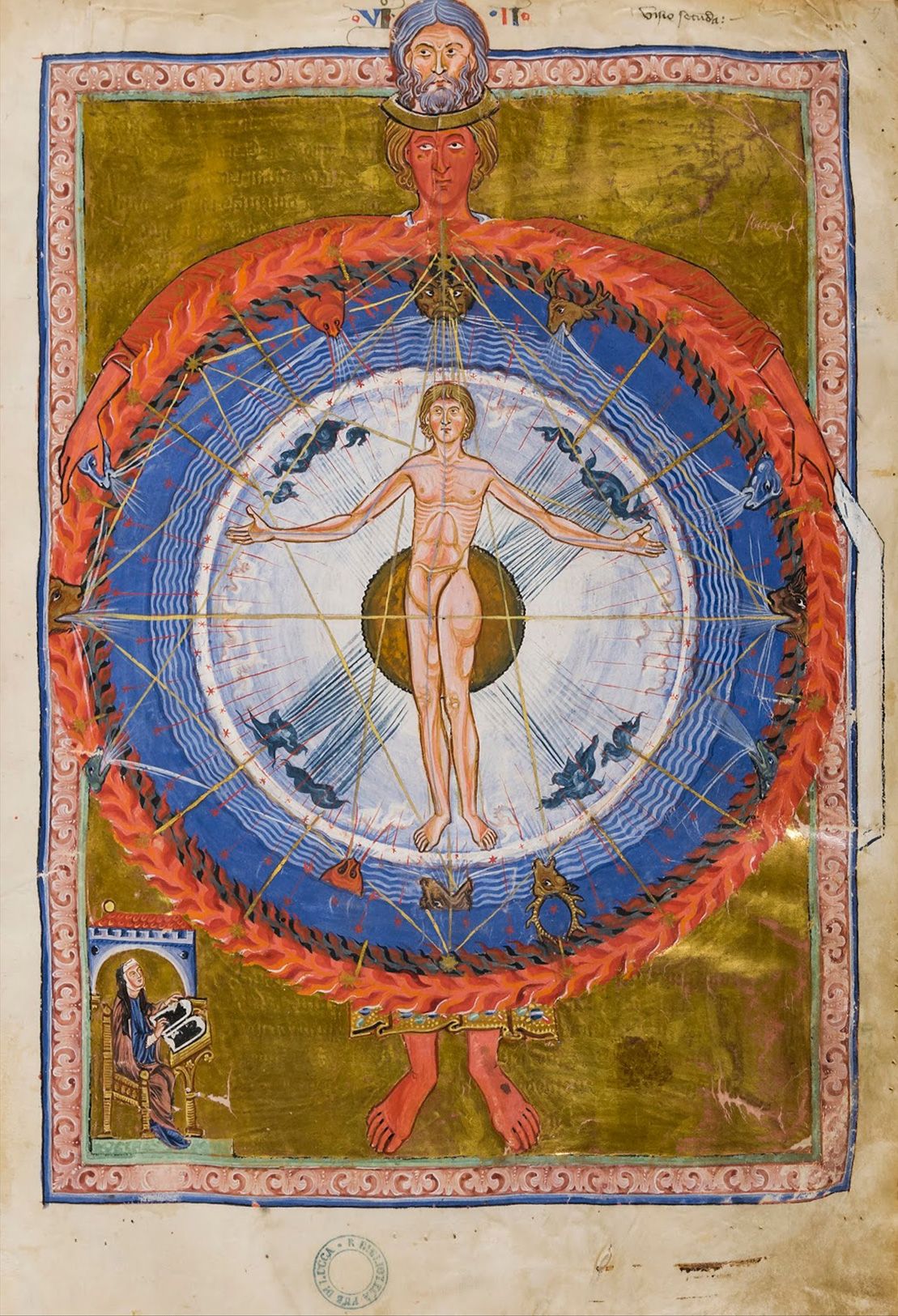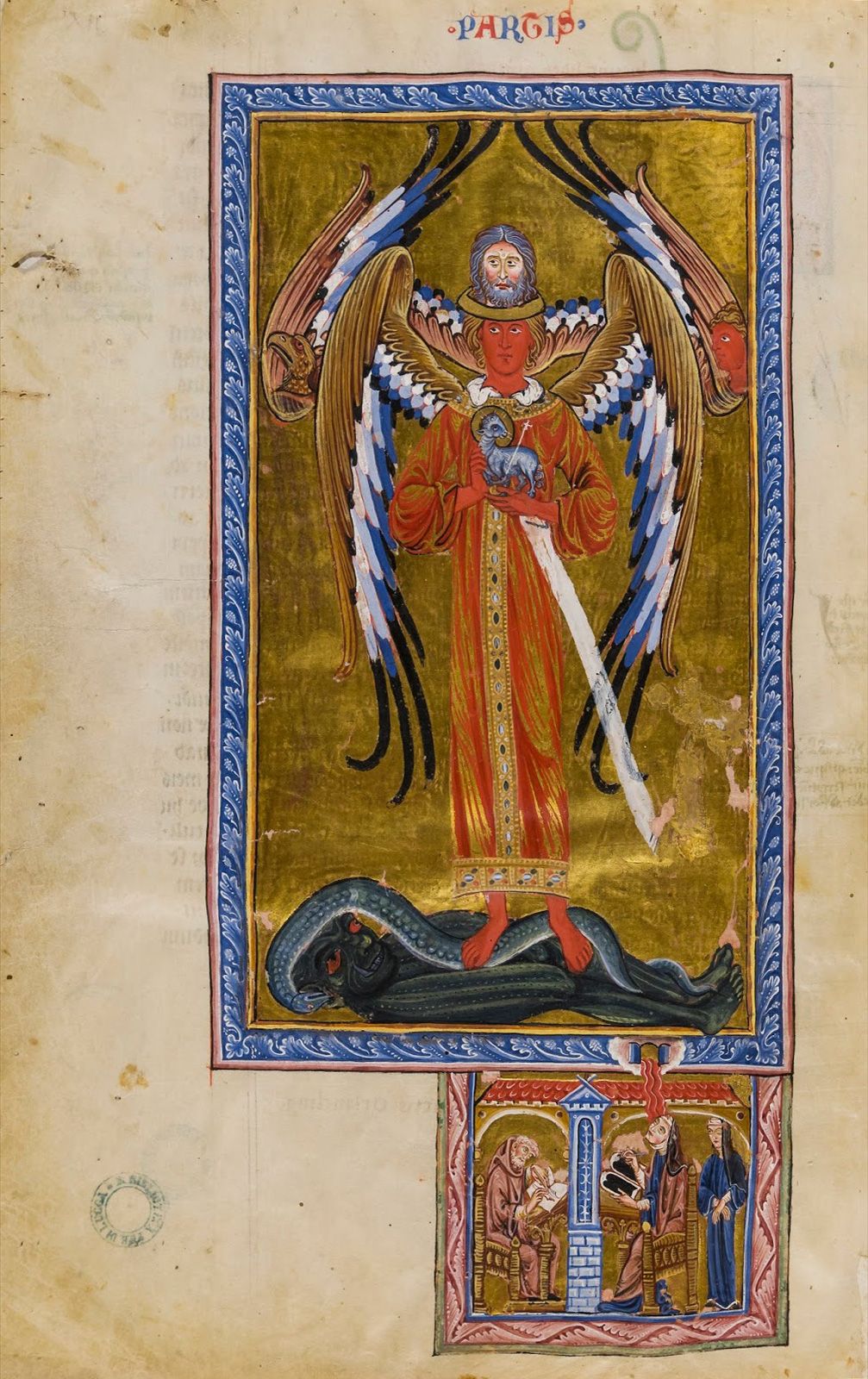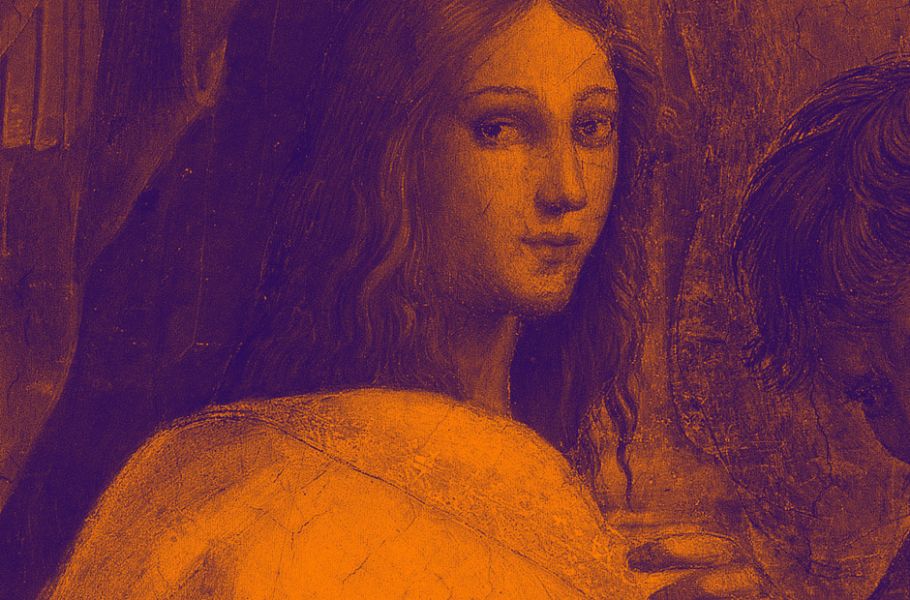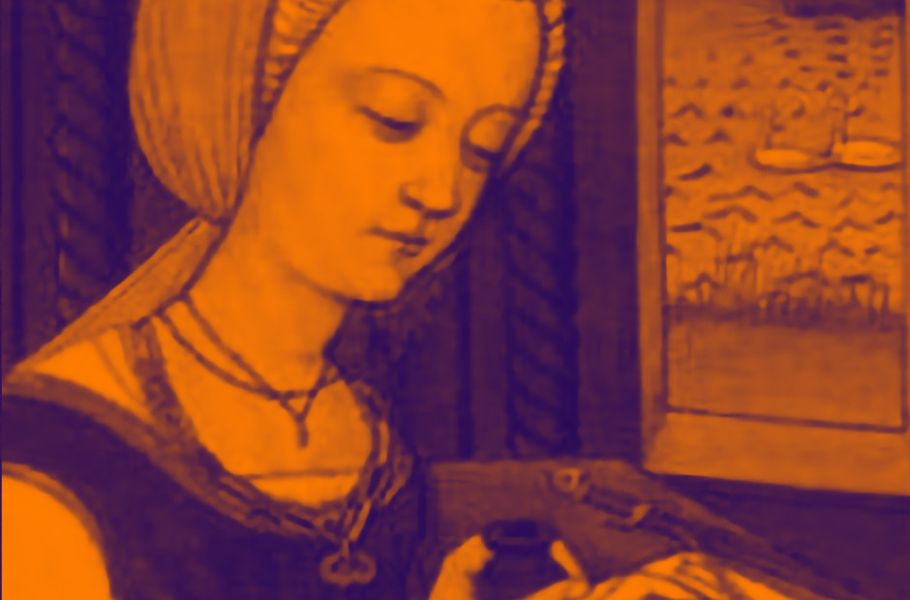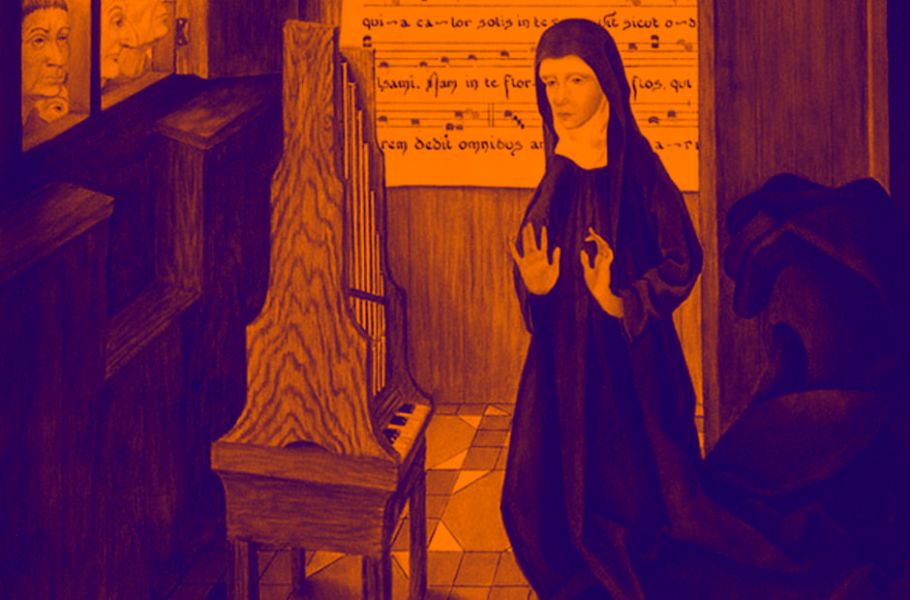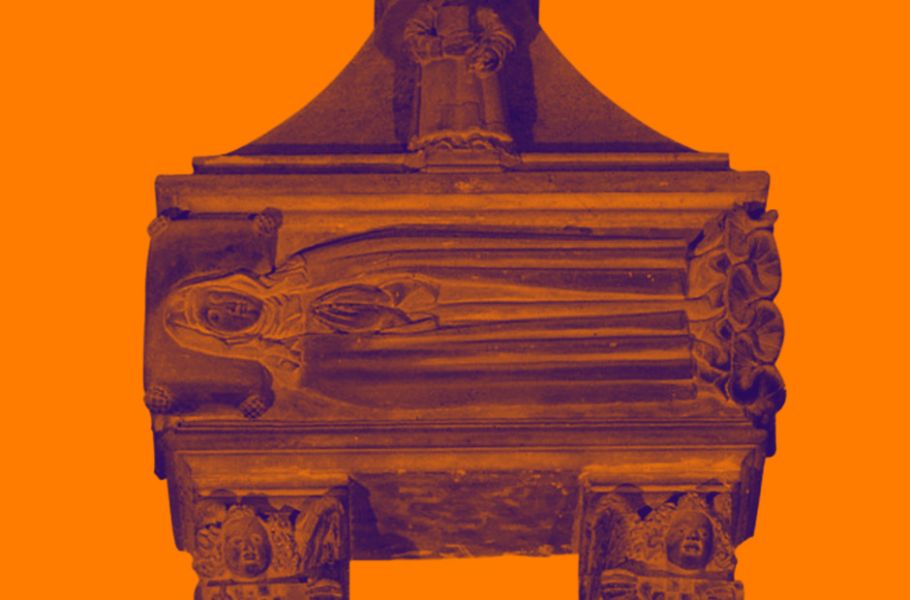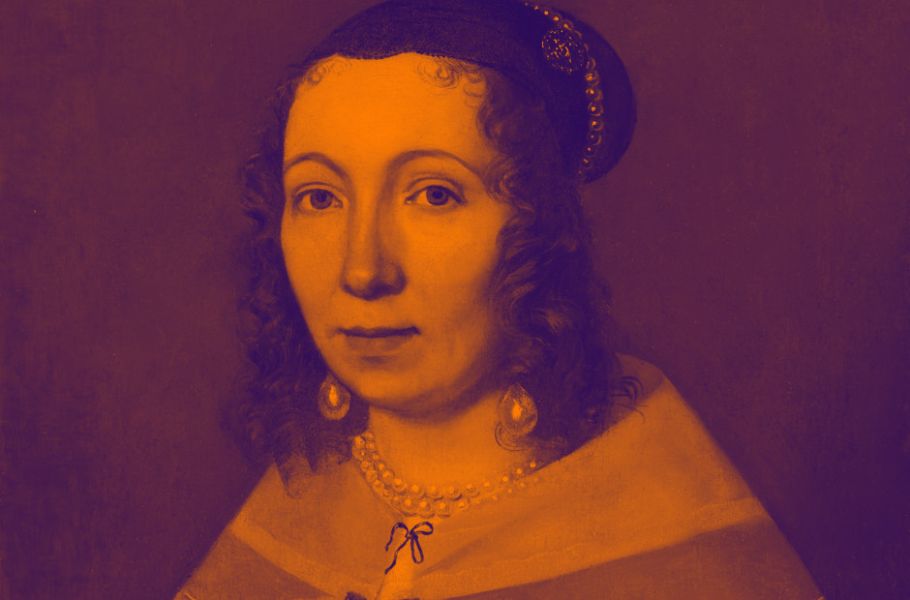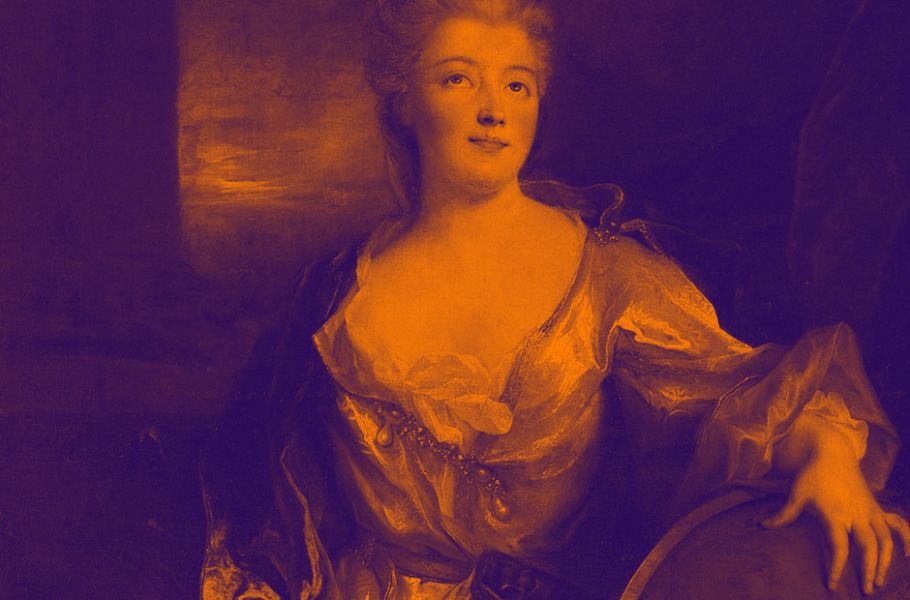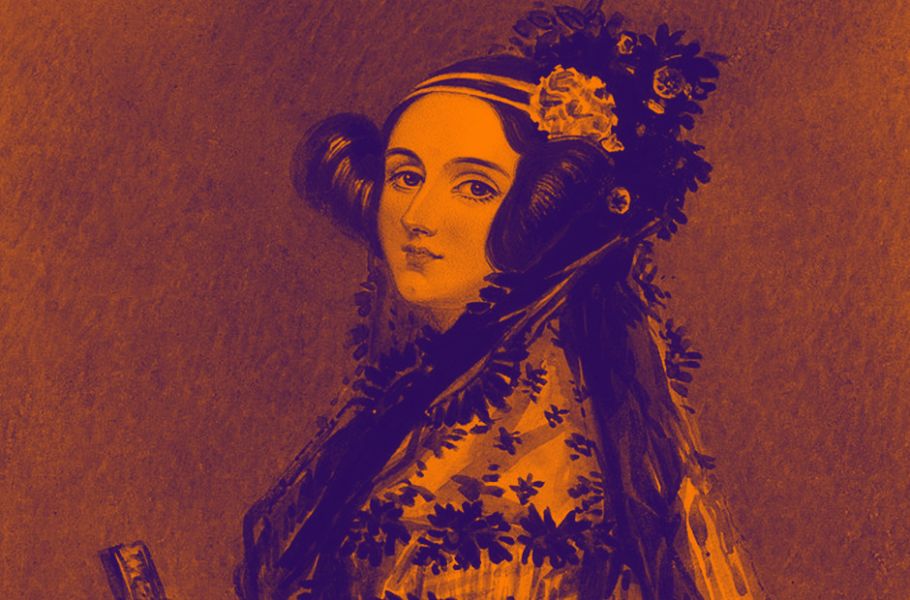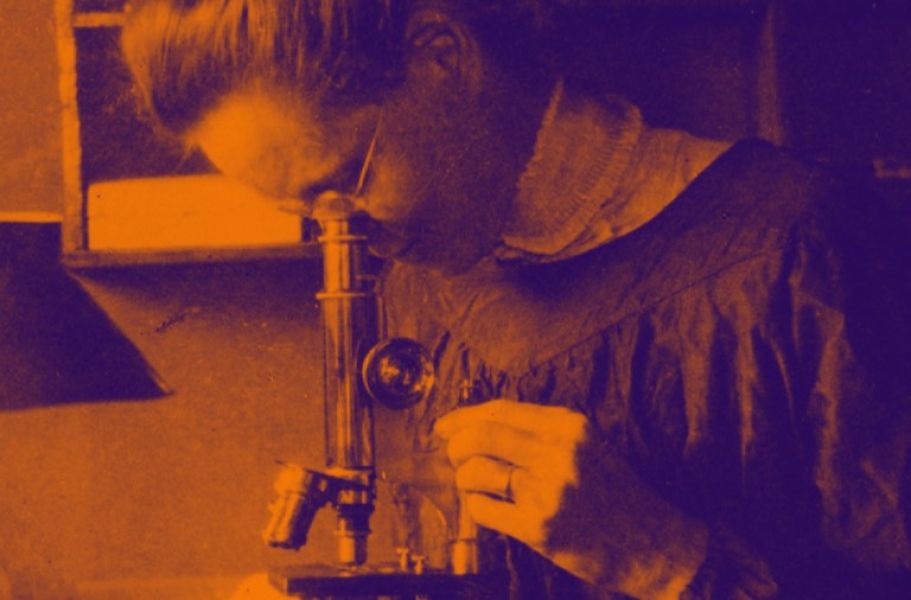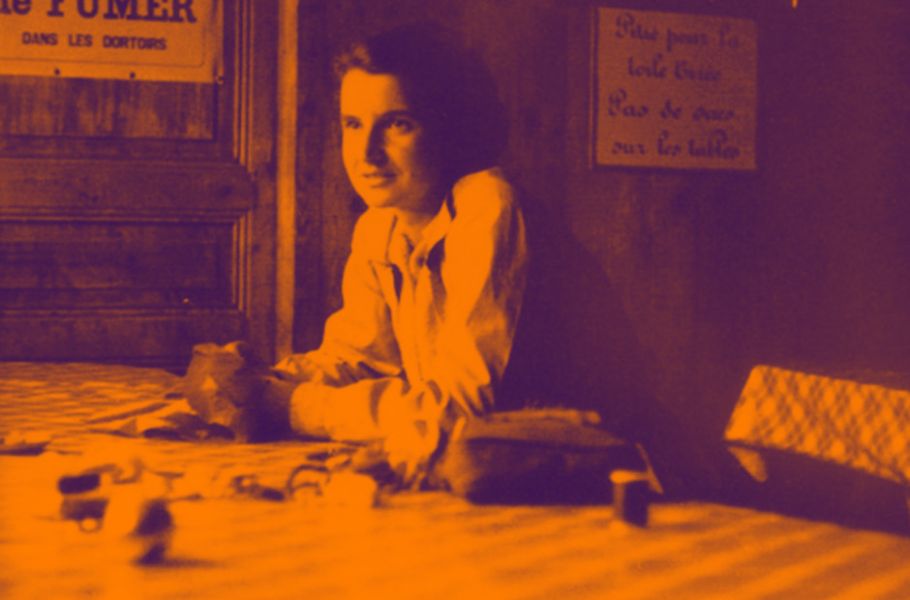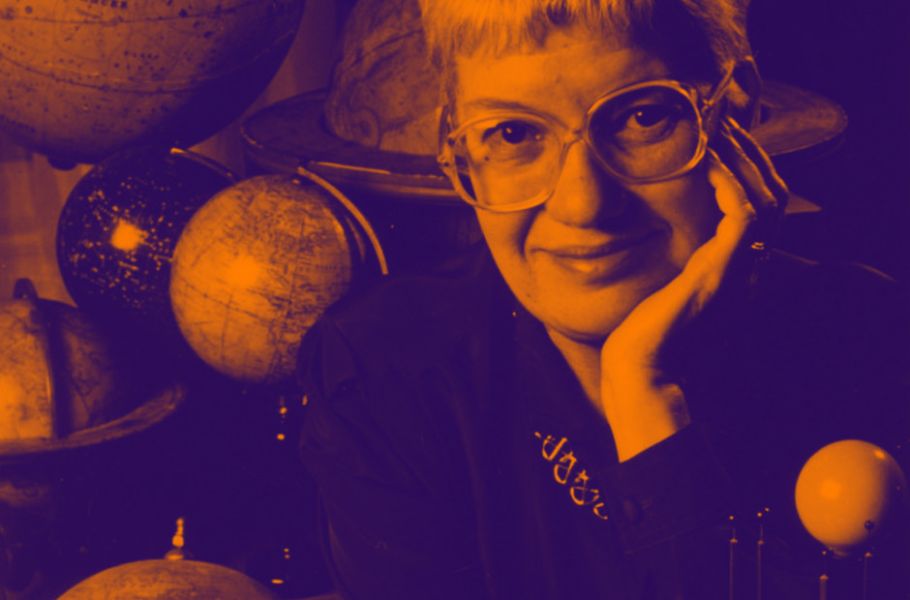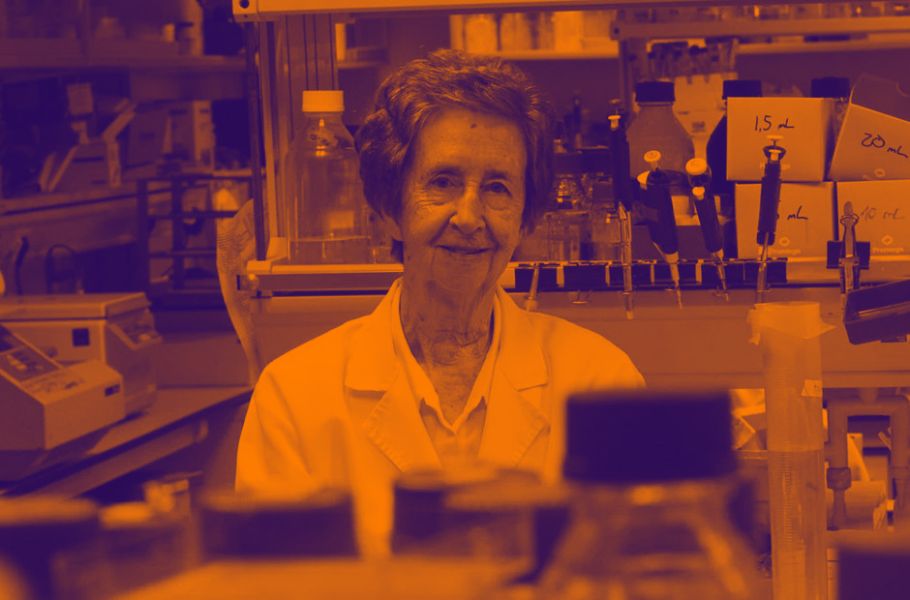HILDEGARDA VON BINGEN
Bermersheim vor der Höhe, Germany
1098-1179
-
occupation
inventress, naturalist, writer, composer, philosopher, Illuminadora, doctor, i religious exorcist
-
religious order
Benedictine nuns -
motion
-
Invents
The unknown language is an artificial language invented by Hildegard. De Bingen is the only person whose writings survive today using this language. She described, uses also invented an alphabet, twenty-three letters, and contains a thousand words, of which he made a glossary in Latin. The language used as a mystic, what would the angels, and could intersperse words unknown language in his writings, achieving an overall effect enigmatic.
It is one of the first artificial languages history, so St. Hildegard of Bingen is considered the patron saint of Esperanto.
The first person in the world who kept written music
St. Hildegard von Bingen is the first person in the world who kept written music, created the first invented language in history and was the first and only woman in centuries authorized by the Church to preach, which he did on numerous tours of German villages and temples.
About sexuality also had a female point of view, positive, from her we have the first description of orgasm
I do not feel these things or ears or body with thoughts of my heart, nor perceive anything to the meeting of my five senses, but in the soul, with eyes open outdoors, in such a way that I have never suffered the absence of ecstasy. I see these things awake, both day and night
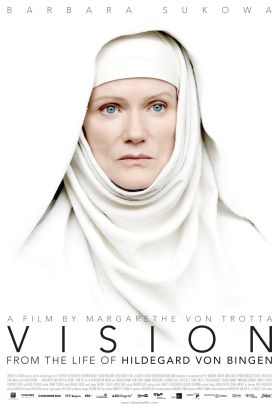
FREQUENTLY ASKED QUESTIONS
Santa Hildegarda (1098-1179) he began writing his first work, Scivias, in 1141 when it counted 43 years and finished last in the 75 shortly before his death. Issued a total of five books seven children, more than 77 musical works, extensive correspondence which conserves more 300 cards, and other minor works. His main works are:
- Know the ways (Know, oh Vies of the Scivias, 1141-1151), which is about the creation of the world and the human being; the being and development of the Church to its eternal perfection, past history, present and future of the human species, the diversion of God and his return to the Father.
- Book of the merits of life (Of free services, 1158-1163) On humans, as always is free to decide who serves and what does. Your message: “Home, become human!”
- Book of divine works (The book of God's works, 1163-1174) Which describes Creation as a work of art, and the human being as a microcosm that integrates into itself all of it.
The medical works of St. Hildegard (1151 – 1158) possibly followed dictated under the common title: Free subtleties of the different natures of creatures; (Book of observations on the natural properties of created things), that in the thirteenth century seems to be divided into two texts: I cause physical and Cares:
- Physica (Natural history), also known as Liber medicinae simplify (Book of Simple Medicine), which describes the human utility of animals, vegetable and mineral common, i
- Cause they care (Causes and Remedies), also known as Liber Compositae Medicinae (Book Medical Complex) the causes of disease, its remedies and the inner workings of the human body.
His correspondence (1147-1179) has more than 300 letters on the whole social scale of the time: popes, emperors, trip, nobles, bishops, monks, and people from all walks of life who came to Hildegard in search of help and advice
Hildegard wrote seventy-eight musical works, Agrupados en symphony of harmony of celestial revelations: 43 antífones, 18 responsoris, 4 hymns, 7 sequences, 2 symphonies (the meaning itself of the twelfth century), 1 hallelujah, 1 kyrie, 1 book and piece 1 speakers (fascinating, for the oratory was invented in the seventeenth century). In addition, composed a music called Ordo sacramental act virtutum ( “Order of the virtues”, Latin), on the virtues.
From a young age he had mystical visions but did not begin to write his visions until he was forty years old., Once defeated scruples and doubts. He wrote three books about these religious experiences: of the Scivias (‘Know the ways of the Lord’), considered the most important, The working life of the merits of the book I. Their views or “divine inspiration” ecstasy or sold without transport. the elaborated, he interpreted and dictated on the eve of collaborators who wrote them, and highlights the nun Ricarda, who was strongly linked.
Hildegard’s writings deeply impressed Bernat de Claravall and he sent them to Pope Eugene III. (1145-53) who after reading them wrote a letter congratulating the Hildegard, encouraging it to continue writing and giving permission for a convent founded in Bingen, without the guidance of head monk, as was his wish.
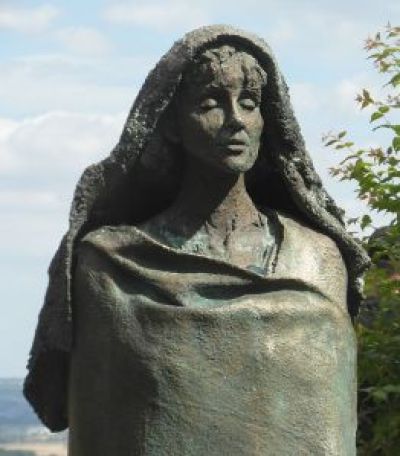

Religious

philosopher

Naturalist

writer

inventress

Composer

Physician

Illuminadora

Exorcist

Taumaturga

Predicadora


